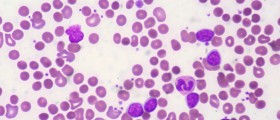Overview
The importance of zinc for humans was recognized over 50 years ago in the Middle East where it was noticed that zinc-deficient individuals had severe issues with their immune systems.
Zinc deficiency seems to be prevalent in the developing world and it seems that up to two billion people may be growth restricted due to this issue. Cognitive impairment also seems to be linked to a deficiency in this essential element.

How is zinc associated with the immune system?
A study has demonstrated that zinc has anti-inflammatory properties by reducing the number of inflammatory cytokines produced by white cells in young adults and the elderly and is also an antioxidant that helps rid the body of free radicals.
Supplementation with zinc has been shown to be beneficial to patients in preventing blindness associated with conditions such as age-related macular degeneration, acute infantile diarrhea, and the treatment of the common cold.
Zinc and the common cold
Since zinc helps the white cells to function properly and fight off infections faster, this means that the signs and symptoms caused by problematic viral infections such as the common cold can resolve faster and the affected individual can get back to work or school and productivity won't be affected as negatively as it could potentially have been.
The effect of zinc will also reduce complications in those who have weakened immune systems such as patients with diabetes, asthmatics, patients on chronic steroid therapy, pregnant women, and the elderly.
Reduction of free radicals
As mentioned, zinc also helps to reduce the formation of free radicals in the body. These compounds are responsible for several chronic human diseases such as mutagenesis and the formation of cancer cells, immunological disorders, atherosclerosis and other vascular conditions, and the process of aging.
Interestingly, the production of inflammatory cytokines also stimulates the production of free radicals. Therefore, zinc also helps to reduce the amount of the free radicals by suppressing the production of the inflammatory markers.
Zinc and transplantation
There is evidence available to suggest that in vivo supplementation of zinc at therapeutic levels blocks the allogeneic response while maintaining antigenic potency. This finding may have future implications for patients who receive transplants where selective suppression of the allogeneic response is needed. This will be especially important in patients who receive bone marrow and stem cells transplants.
- www.ncbi.nlm.nih.gov/pmc/articles/PMC2277319/
- Photo courtesy of SteadyHealth
















